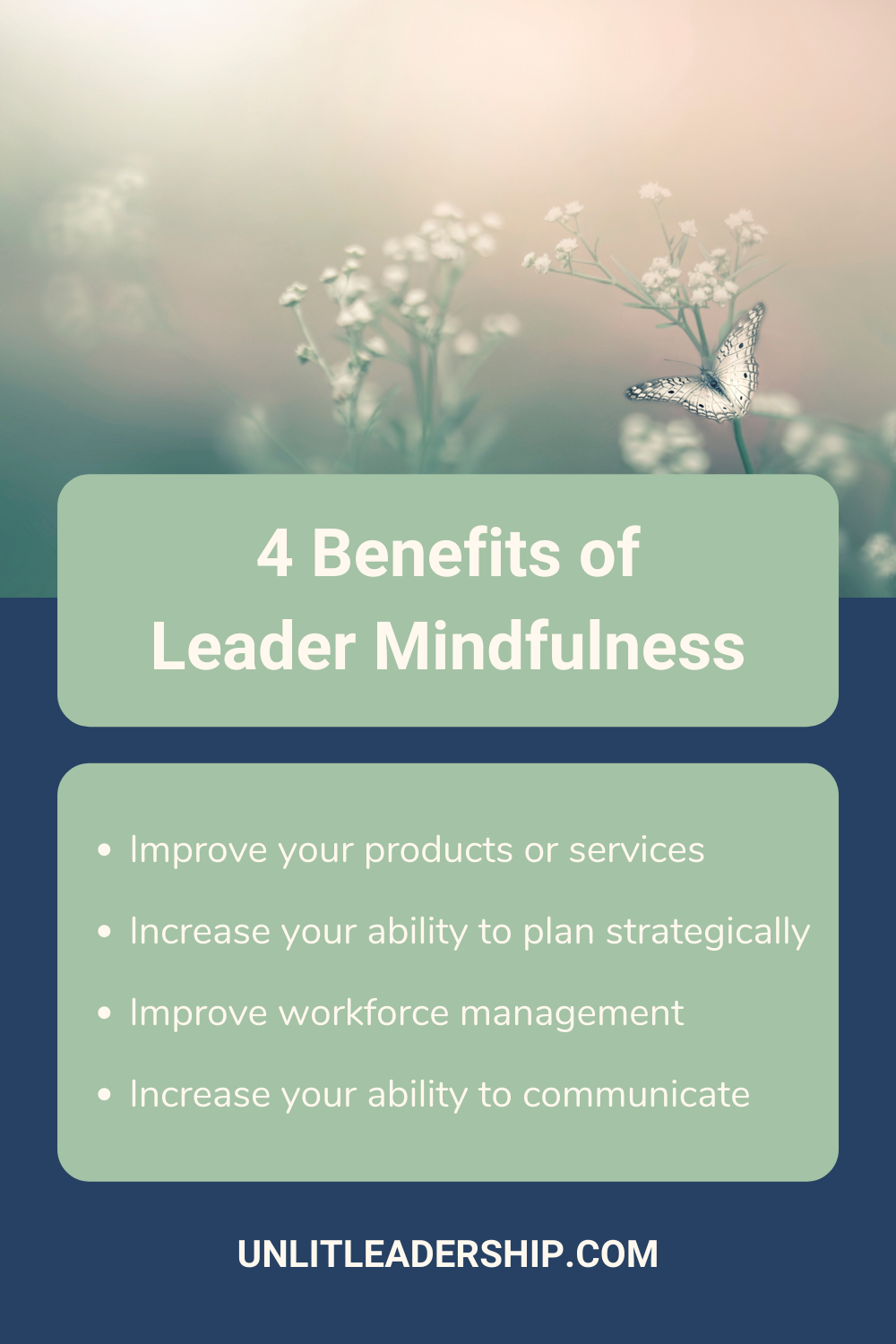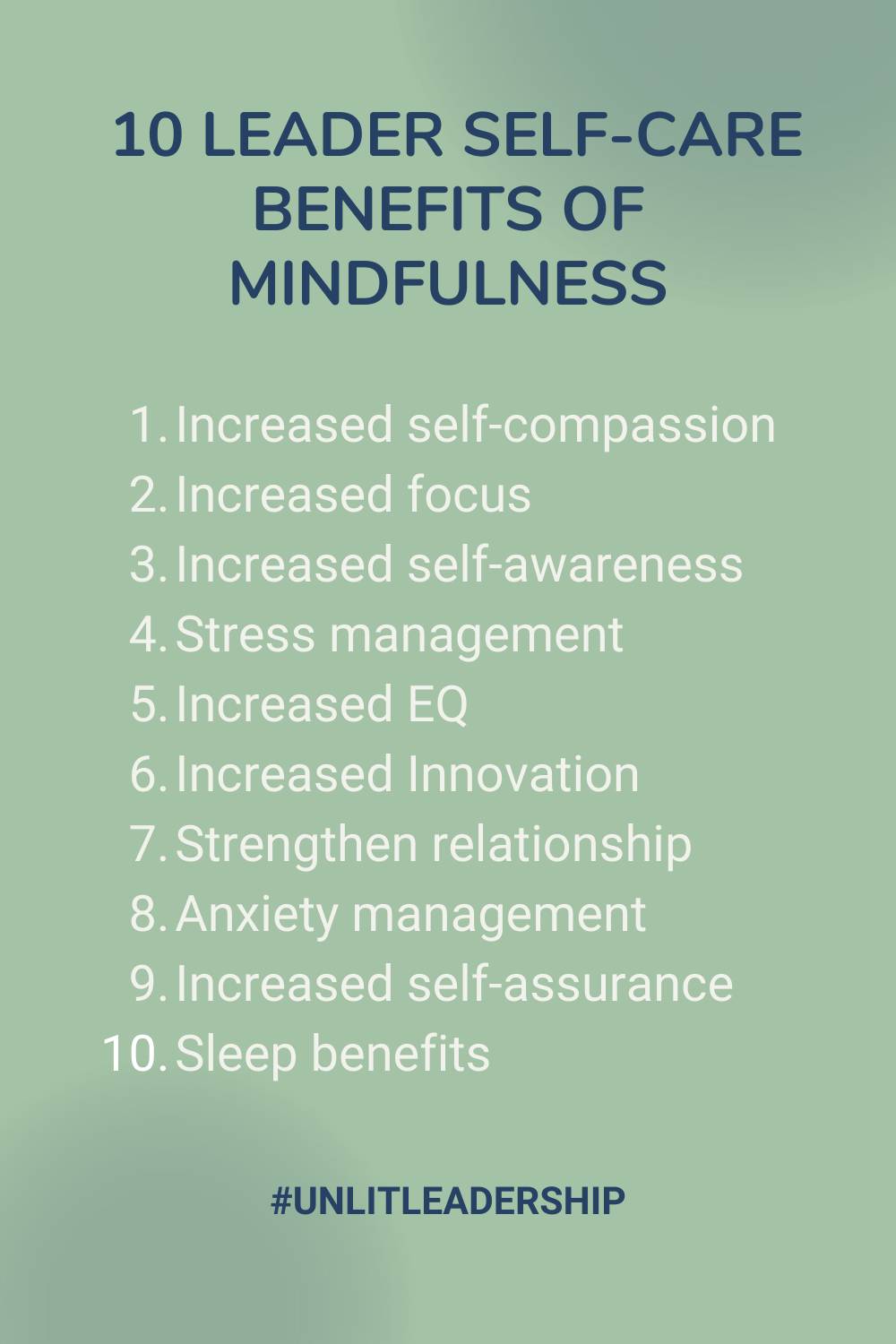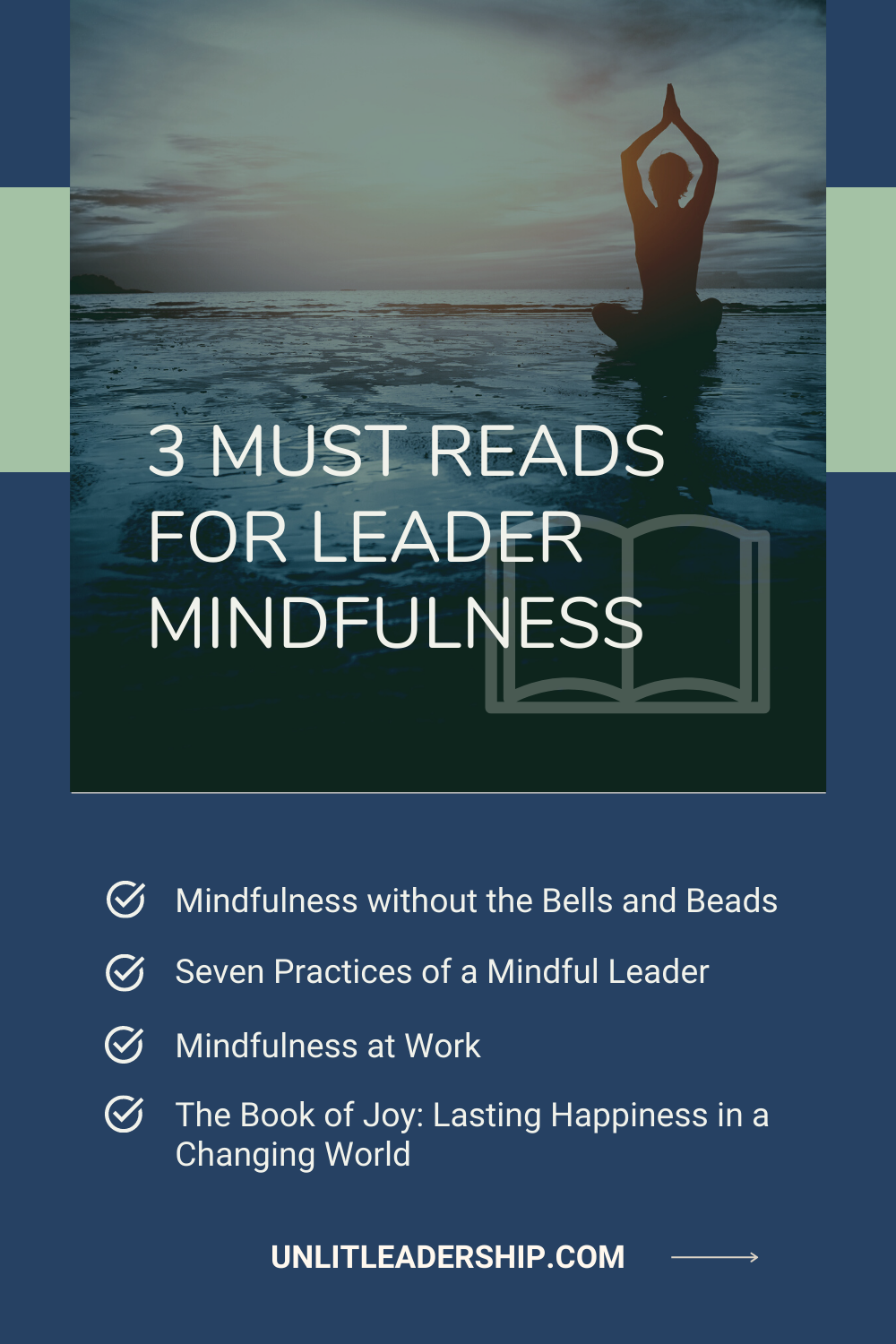I often discuss the importance of leaders utilizing all tools at their disposal to increase their effectiveness. In my recent blog, I discuss holistic health and the benefits of adding a holistic approach to the leader’s lifestyle. I want to provide another hidden gem for leaders, business owners, entrepreneurs, etc., leader mindfulness for this article.
What is leader mindfulness?
The term “mindfulness” refers to the practice of being completely aware and in the moment. A mindful person pays attention to what is happening around them both mentally and physically in a nonjudgmental way. Now apply this concept to your role as a leader; you will be more effective if you can focus your mind and slow down the million and one things going on around you to genuinely see and understand what is happening around you. When I envision mastering mindfulness, I envision Neo when he was finally able to see the code in the Matrix.

Meditation, stretching, breathing, and observation are all mindfulness techniques. In experimental research, individuals who employ mindfulness techniques have improved memory, reduced distraction, and increase empathy. A recent study found that participants who completed a daily meditation practice showed improved attention in just four days.
Many famous CEOs and business professionals practice mindfulness and have credited their success to techniques such as meditation. According to Nicol Natale’s blog article in Everyday Health, Jeff Weiner, CEO of LinkedIn; Marc Benioff, Chairman and CEO of SalesForce; and Arianna Huffington, Cofounder of Huffington Post and Thrive Global all employ mindfulness techniques.
Mindfulness has gained popularity in the past decade. It has helped millions of people worldwide live healthier, more productive lives. The question how can leader mindfulness help you self-develop, become a better leader, advance your career? Here are some ways you or your business will benefit from leader mindfulness if you:

Improve your products or services
If you are a leader in a product or services-related business, you may be surprised to know that you can increase your sales and improve your products by employing leader mindfulness.
- There’s a subgenre of high-product mavens who insist on using conscious approaches to create products. So, what does that imply? Mindfulness will assist you in developing empathy with your users and being honest in your desire to help them overcome their problems.
- When working on new ideas for products or services, you will avoid running and making hasty errors by being present in the moment, which is a central concept of mindfulness.
- Some of the most innovative business people go on walks to spark their imagination. Meditation is a form of artistic escapism that can help you separate your thoughts and promote creativity. Steve Jobs was a meditator and a daily walker. Your creativity and imagination will flow better.
Increase your ability to plan strategically
In a recent article, Maggie Wooll defined Strategic leadership as a leader’s ability to visualize, plan, lead, and make the best out of their resources to execute strategies efficiently and successfully. This definition outlines why this is an essential skill for all leaders. You can up your ability to strategically plan through leader mindfulness.
- Leaders should separate their reactions from a successful strategy. Meditation has been embraced in top boardrooms worldwide, from Google to the Pentagon, for this cause. These high-performing companies have implemented mindfulness practices, which have resulted in new technologies and profitable earnings results.
- The process of paying attention to one’s physical and emotional state is known as mindfulness. When it comes to future preparation, our capacity to consider our current position and make deliberate approaches to problems is invaluable. This skill helps a leadership team determine the strategic market, make appropriate business adjustments, and set effective targets.
Improve your ability to manage your workforce
Every manager isn’t a leader, but every leader must have the ability to manage a group. Workforce management involves the ability to connect, motivate and influence team members. Research shows that mindfulness can help you empathize with others. Therefore, developing empathy may improve your managerial skills since empathy is a critical component of leadership and management.
- When leaders consider the personal qualities and characteristics of their workforce, with the organization’s culture, leaders may connect better with their workforce. You will boost the workers’ motivation. Your subordinates will see you as a more thoughtful and successful boss.
- The ability to increase a group’s motivation is a priceless asset that will aid you in increasing efficiency in good times and retaining talent during more difficult times.
Increase your ability to communicate
The ability to effectively communicate is a skill that is required in all types of relationships, whether family, work, or community. However, as a leader, this is a skill that you can always work to approve. According to a 2020 study in project.co, 96% of people think the businesses they deal with could improve when it comes to communication and project management. For this reason, I posted a list of books to help increase a leader’s communication skills. However, mindfulness is a Leader Pro Tip that leaders can use to improve their communications skills.
- We often hamper our ability to interact efficiently by our emotions and preconceived notions about a situation. Leader mindfulness such as mindful meditation, among other exercises, will help us take a step back from a crisis and figure out how to communicate our emotions more effectively.
- Self-awareness teaches us to notice our emotions and take a deep breath before responding to a circumstance. Often, simply stating, “I am irritated,” helps us separate ourselves from the emotion and react more effectively.
- We eventually grow stronger bonds and trust by building sensitive rather than reactive dialogues.
Leader Mindfulness and leader self-care
This blog is all about self-development for leaders. You can’t correctly lead your team if you don’t care for yourself. As leaders, our harshest opponents are ourselves. Top performers are often dismissive of self-care techniques, even when they may help them reach new heights. However, when you increase self-compassion, you significantly impact your life and those around you. Here are some self-care benefits of leader mindfulness.

- Increased self-compassion: The source of our stress and anger toward others is frequently our lack of compassion for ourselves. When we have unrealistic expectations for ourselves, we may also have unrealistic expectations for our business. As a result, employing mindfulness will help leaders develop a degree of internal compassion. This inner compassion will help us relieve tension, set higher expectations, and feel more confident about our accomplishments.
- Increased focus: A regular meditation activity, according to research, will help people sharpen their attention and enhance their concentration. Our thoughts drift around half of the time, but meditation will help you learn to control distractions and improve your ability to concentrate.
- Increased self-awareness: Meditation automatically increases introspection, allowing you to heal quickly when provoked, disengage when necessary, and manage bad habits.
- Increasing resilience and stress management: Meditation, through reducing discomfort, could improve endurance and success under stress. Daily meditation will help you maintain your calm and reduce the effects of stress.
- Increased EQ: A mindfulness exercise will assist you in slowing down long enough to control your feelings and react with empathy and rationality. Mindfulness practitioners have more emotional balance and are less likely to respond impulsively to frustrating or emotionally fraught scenarios. This increased EQ could help you make more rational decisions and stay calm.
- Increasing Innovation: Leader mindfulness techniques, such as meditation promotes divergent reasoning, which leads to different ideas and is an essential component of innovation. According to research on imagination, we have our most profound experiences and breakthroughs while we are in a more meditative and peaceful state of mind. It is where the “aha!” moments occur.
- Strengthen relationship: Representatives who practice meditation daily report that their professional and personal relationships are happier. Meditation will help you shield yourself from the detrimental consequences of interpersonal tension and struggles.
- Anxiety management: Learning to reduce anxiety and fear is one of the most valuable benefits of meditation and mindfulness, especially yoga. Leadership comes with a constant burden of fear and tension, and learning to reduce anxiety is one of the most valuable benefits of meditation and mindfulness you can utilize.
- Increasing self-assurance: Meditating helps you to slow down and avoid running between tasks. It inspires you to think that you can do something you feel is unlikely.
- Reaping the benefits of sleep: Research demonstrates that insomnia impacts over half of the population at some moment in life. Studies have shown that meditation makes people fall asleep faster and remain asleep for longer. It shows you how to redirect or regulate your pounding impulses, which are a common cause of insomnia, so that you can feel calmer, tension-free, and happy.
Ready to start your leader mindfulness journey

Below are my top three books to assist leaders in beginning their mindfulness journey:
Unlit Leadership is a participant in the Amazon Services LLC Associates Program, an affiliate advertising program designed to provide a way for websites to earn advertising revenues by advertising and linking to Amazon.com. As an Amazon Associate, I earn from qualifying purchases.
Mindfulness without the Bells and Beads: Unlocking Exceptional Performance, Leadership, and Well-being for Working Professionals
As an active Warrant Officer with close to 24 years in the U.S. Army, this was an easy selection for me. Author Cliff Smith is credited for bringing mindfulness to tens of thousands of corporate and government leaders across the globe. According to Amazon, Clif shares teachings and insights to help achieve the tangible benefits of practicing mindfulness as a fundamental part of our professional and personal lives. This book is excellent for any leader learning practical mindfulness strategies from an internationally renowned expert.

Seven Practices of a Mindful Leader: Lessons from Google and a Zen Monastery Kitchen
If you are looking to mimic the practices of some of the juggernauts of business-like Google and Facebook, look no further than Marc Lesser’s seven-step method for leaders. Many experts credit Marc Lesser for helping develop the world-renowned Search Inside Yourself (SIY) program within Google. The SIY program is mindfulness-based emotional intelligence training for leaders that teach the art of integrating mindfulness, emotional intelligence, and business savvy to create great corporate cultures and a better world. In seven practices of a leader, you receive lessons from a longtime Zen practitioner and an expert in the field of mindful leadership.

Mindfulness at Work: How to Avoid Stress, Achieve More, and Enjoy Life!
Author Dr. Stephen McKenzie ascertains that mindfulness isn’t anything that we think, but instead, it’s what we don’t think. Mindfulness isn’t something that other people do, but rather it’s something that we all do. Unlike my last two recommendations, mindfulness at work focuses on managing distractions and stresses, which now can apply to work from home and the office.
If there was ever a time in history when leaders needed to employ Dr. McKenzie’s methods, it’s now. Dr. McKenzie states that mindfulness is an ancient, life-enhancing, healing technique that can help us remember our natural state of happiness and health, even if we are too modern and too busy to prioritize what’s important – being fully alive and fully alive to our entire life potential. This book is an excellent read for new and experienced leaders alike.

BONUS READ: The Book of Joy: Lasting Happiness in a Changing World
This book collaborates with the Dalai Lama, one of Buddhism’s greatest spiritual leaders, and the late Archbishop Desmond Tutu, a Nobel Peace Prize laureate. The two men were close friends for many years, and they partnered up to try and make the world a happier place. Though not targeted explicitly to leaders or specifically to mindfulness, you are bound to be in for a treat when you bring together the His Holiness, the Dalai Lama, and the late Archbishop Desmond Tutu.
The book is structured around conversations during several meetings in the Dalai Lama’s home in Dharamsala, India. Any experienced leader can benefit from some lessons revealed through their conversations as great leaders.

Final thoughts
Leaders can develop many talents and characteristics essential to becoming a better leaders through mindfulness. However, creating this self-awareness and mental clarity level requires time and effort. Use the basic techniques we discussed today to begin designing a routine for mindfulness exercises or to become more self-aware during your day.
Whatever method you use, the main thing is that you begin anywhere and consistently attempt to be more attentive. If you are want to learn more about self-awareness and emotional intelligence, be sure to check out the blogs below:




3 Comments
Kevin Foodie
This is such interesting post. You have hit so many nails on the head. Wish i could send this blog to my Manager and Director. They could learn a thing or 2 from mindfulness leadership. Thanks for sharing.
The Unlit Leader
Much appreciated, I’m a big believer in trying to uncover any tool that can help leaders up their game. Thanks for checking out the blog!
Martina
These are so very great insights. I will definitely be practicing these tips from hereon. Thank you so much for sharing this with us, I’m sure this will help a lot of people including me when it comes to understanding mindfulness.